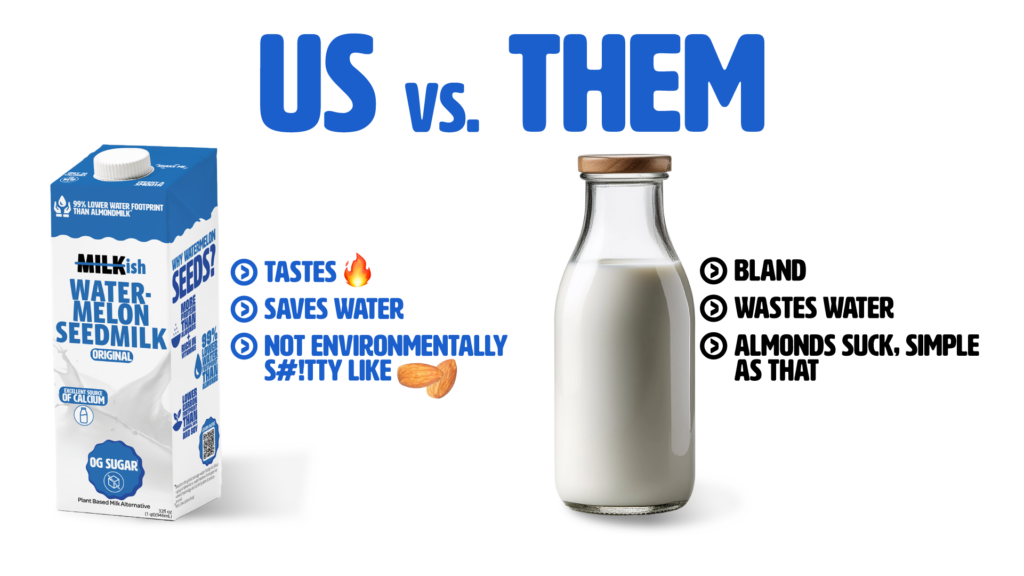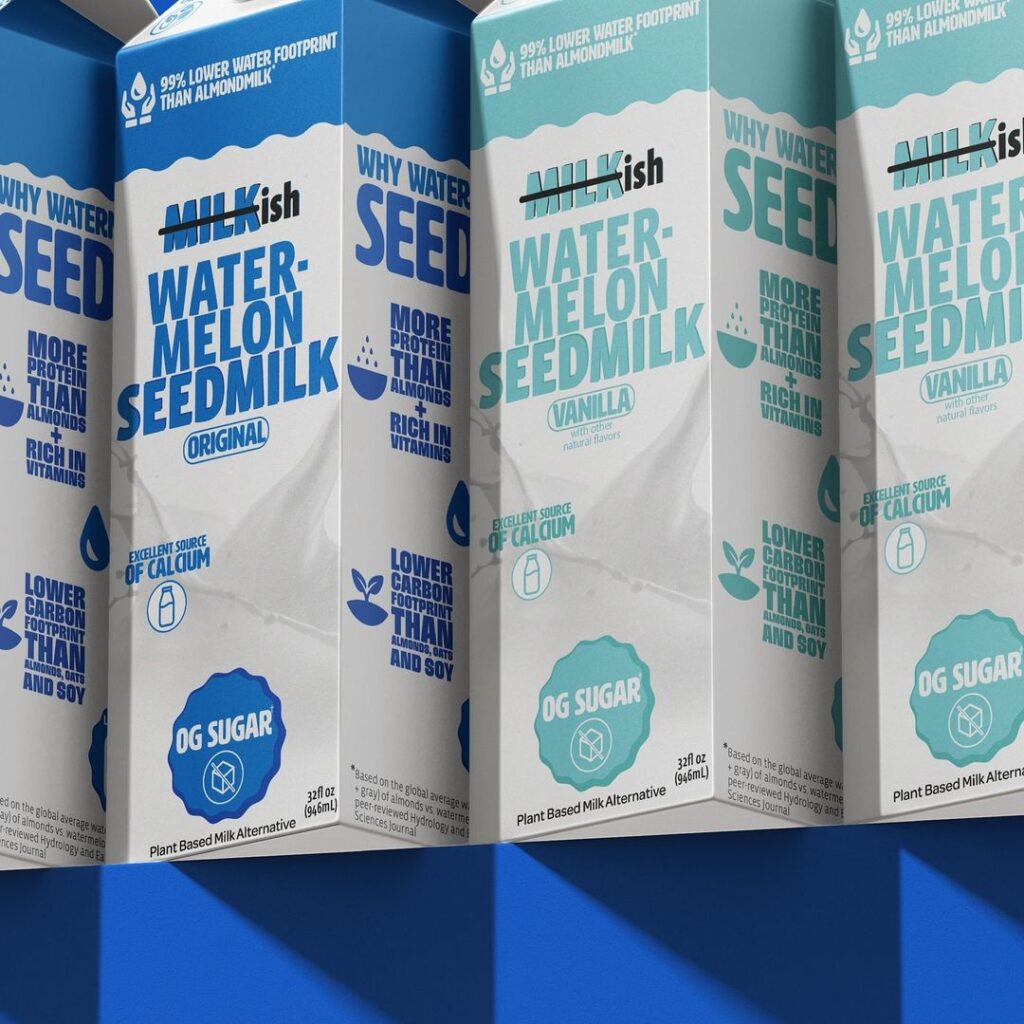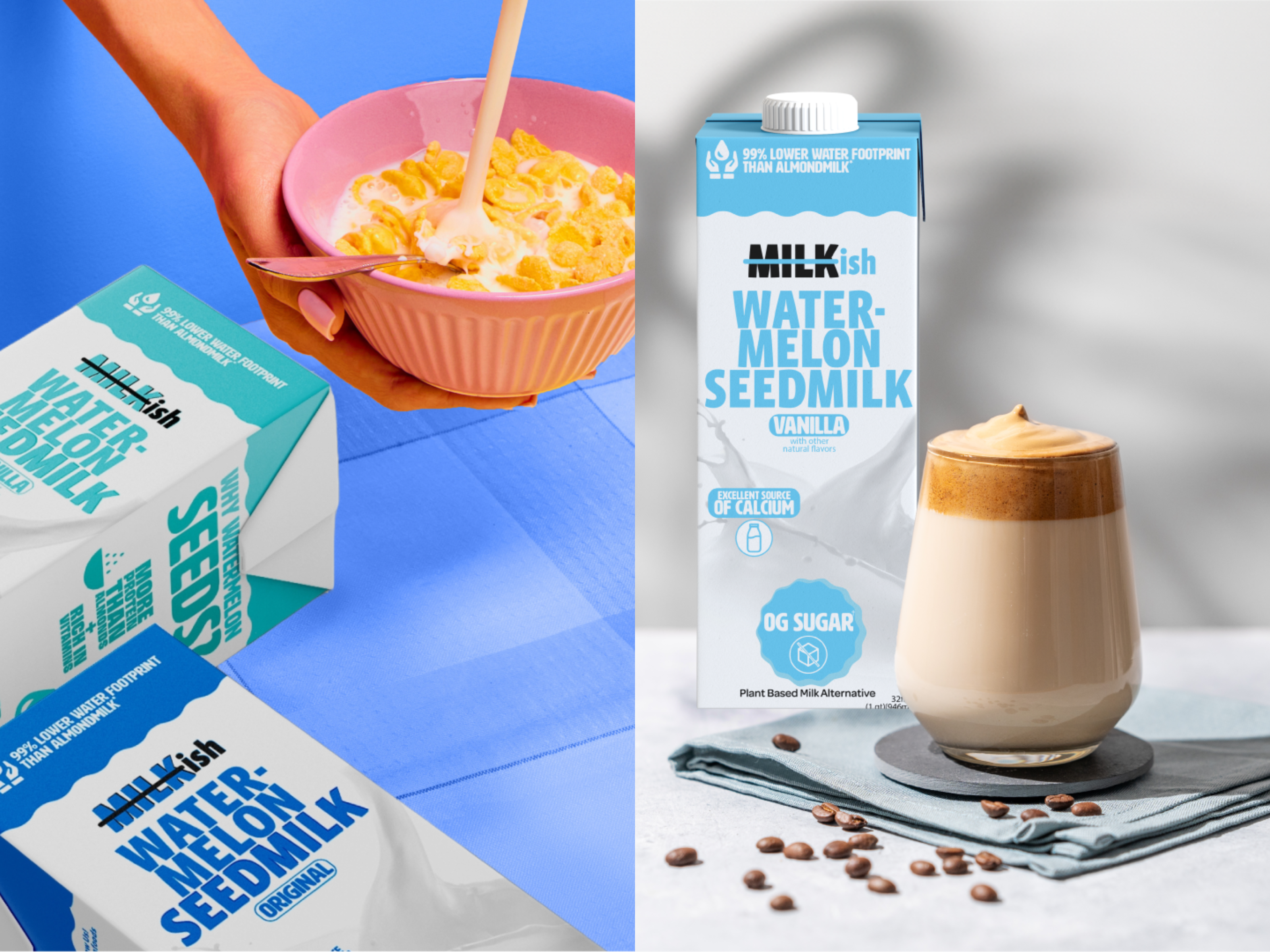5 Mins Read
Força Foods, a California-based startup, is making watermelon seed milk to combat the water footprint of traditional dairy alternatives. It’s among a host of new-age alt-milks keeping consumers invested in the category.
Let’s get one thing out of the way: whatever way you put it, dairy is much worse for the planet than any plant-based milk alternative.
A famous 2018 study from two Oxford University researchers proved as much, revealing that cow’s milk uses 11 times more land than the next on the list, oat milk, while generating nearly three times as many emissions as rice milk, the most carbon-intensive plant-based milk.
But one metric where plant-based milk could perform better was water use. While still much lower than the 628 litres of water needed to make a litre of cow’s milk, almond and rice milks both require a ton of water (371.5 litres and 270 litres, respectively) for the same amount.
These are numbers that have fuelled the rhetoric against plant-based milks, especially almond milk, by far the most popular alternative in the US. Addressing the water issue would help the segment hold its own against these criticisms.
Now, one Californian startup has made water waste its main focus – that too through an anti-almond narrative – with what it labels the “world’s first” milk alternative made from watermelon seeds.
Going in on other plant-based milks with bold messaging

It began when Guilherme Maia Silva, a Brazilian researcher who studied Plant Sciences at UC Davis, deepened his knowledge about organic farming and sustainable agriculture. It spurred him on to establish Força Foods in 2021.
“I became fascinated by how the food we grow impacts [the] environment,” he says on the website. “Realising that many plant-based foods rely on water-intensive ingredients, such as almonds, I set out to find a better alternative.”
What began as a snack company has now turned into an alt-dairy startup. “I discovered that watermelon seeds are not only nutritious, packing more protein than almonds and rich in antioxidants, but also require 99% less water to grow than almonds,” says Maia Silva.
Força Foods’s flagship range, called Milkish, isn’t just dissing almonds. It also notes that watermelon seeds need 72% less water than oats and 53% less than soy, which are both among the mainstream plant-based milks.
The range – which comes in original and vanilla flavours – combines watermelon seeds with MCT oil, sunflower lecithin, pea protein, cellulose gel and gum, and natural flavours. They are sugar- and carb-free, have 42% fewer calories than low-fat milk, and are fortified with calcium, potassium, and vitamins A, D and E. (That said, the use of MCT oil means the saturated fat content is higher than 1% milk.)
The company is taking on competitors in a bold manner, asking consumers to “ditch the others” and declaring that “almods suck”. In a comparison with Malt Organics and Oatly, it labelled Milkish as the only product that is “delicious by itself”, noting how it can be used in frothed coffee beverages, cereals, smoothies and baking, or consumed straight up.
But despite this messaging, it seems Força Foods will follow the Oatly playbook, expanding first through foodservice locations before venturing into retail.
Força Foods isn’t the first alt-dairy company to innovate with watermelon seeds. Miyoko’s Creamery, an industry pioneer, has been selling a pourable mozzarella made from a combination of watermelon seeds and oats since 2022, and has previously introduced watermelon and sunflower seed cottage cheese. In India, Katharos Food (now owned by Nourish You) makes vegan mozzarella and Cheddar from watermelon seeds.
New-format milk alternatives to save the day

“Water scarcity is one of the biggest limiting factors to our global food supply and agriculture directly contributes to over 70% of the world’s freshwater use. Consuming lower footprint alternatives is an easy and delicious way to live more sustainably,” the company says.
This is true. Just last week, a major report found that the global water cycle is “increasingly out of balance”, and the crisis could threaten more than half the world’s food supply by 2050. One of its key recommendations is to reduce agricultural reliance on water and dependence on water-intensive foods.
But brands like Força Foods may also be appealing to something else. More and more companies are coming up with ‘non-traditional’ plant milks, or those outside the Big Four of soy, oat, almond and coconut.
Pistachio milk has become a social media darling ever since Táche burst onto the scene in 2020, while Dug’s potato milk began making waves a year later. Today, consumers can also buy buckwheat milk from Bam, sunflower seed milk from Lattini, pecan milk from THIS PKN, sesame milk from Hope and Sesame, and even banana milk from Mooala.
These brands are hoping to offer consumers something different. A new base, sure, but also cleaner labels, better nutrition, lower sugar content, and greater sustainability credentials than the status quo.
And they may be on to something. Research has shown that despite the widespread adoption of milk alternatives – 44% of US households bought these products last year, and nearly 80% went back for more – a third of Americans still haven’t found a plant-based dairy product that meets all of their needs.
“This is a call to action to the food and beverage industry. You need a fresh, creative approach to flavour creation, colour, and texture development to make products that captivate consumers,” said Sonali Dalvi, VP of innovation at Ofi, which conducted the survey last year.
Milk alternatives alone make up 36% of all plant-based sales in the US, and almond still reigns supreme. But outside of the Big Four, blends – think NotCo’s use of peas, cabbage and pineapple in NotMilk – represent the fifth-largest segment. Retail sales of plant-based milk dropped by 5.2% in the year ending July 14, with almond and soy milk on the decline and oat milk purchases remaining flat.
Can blends and newer options like Milkish turn the tide for the category?



